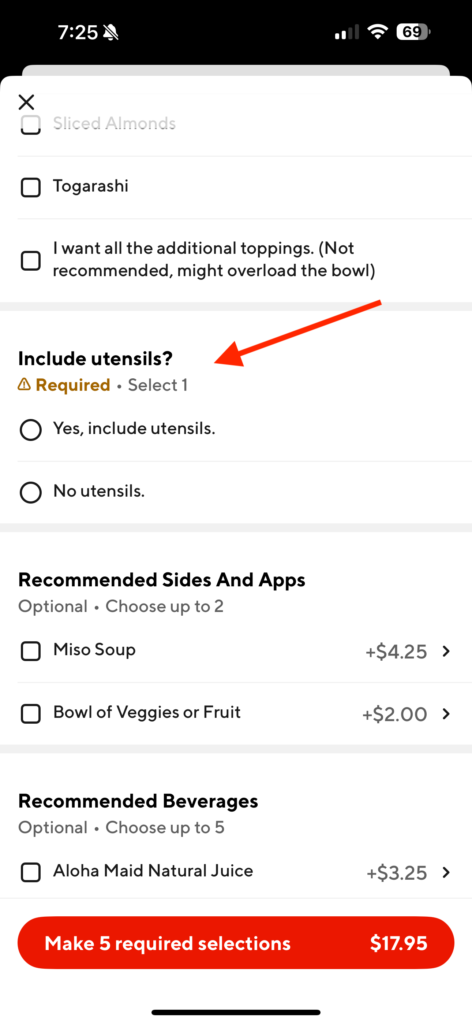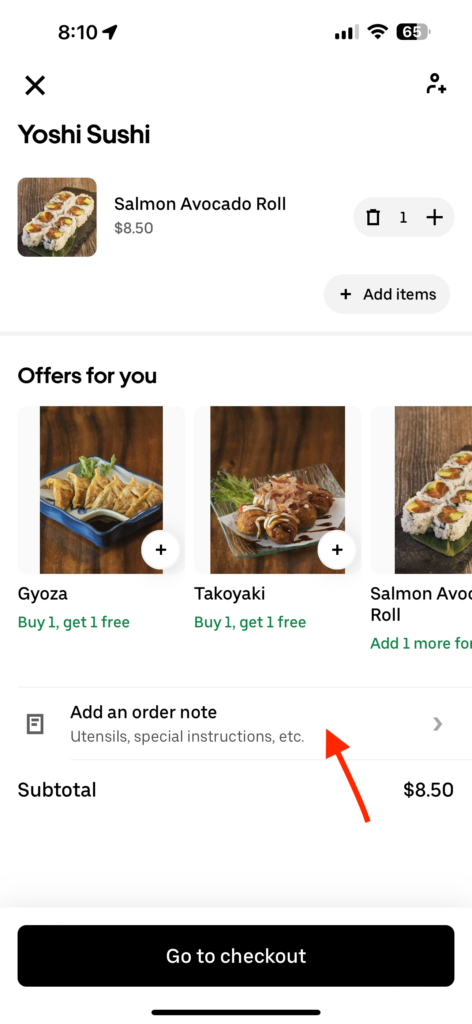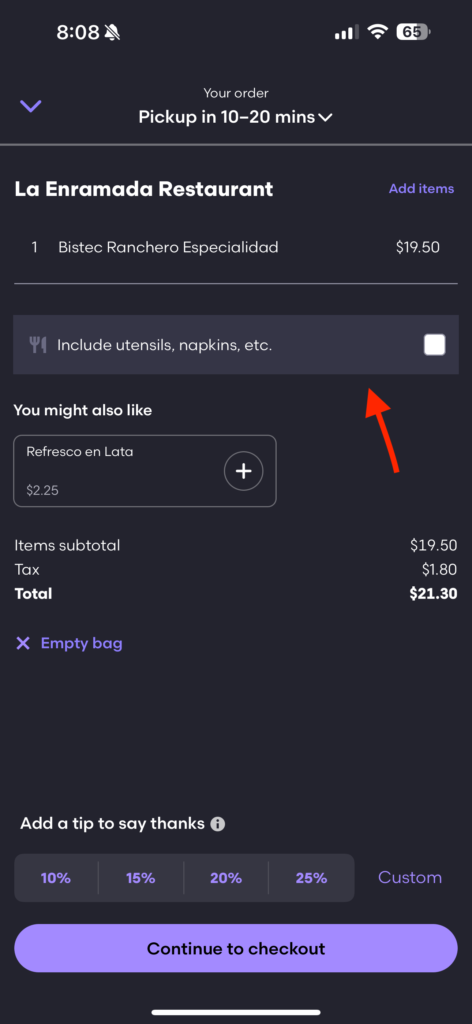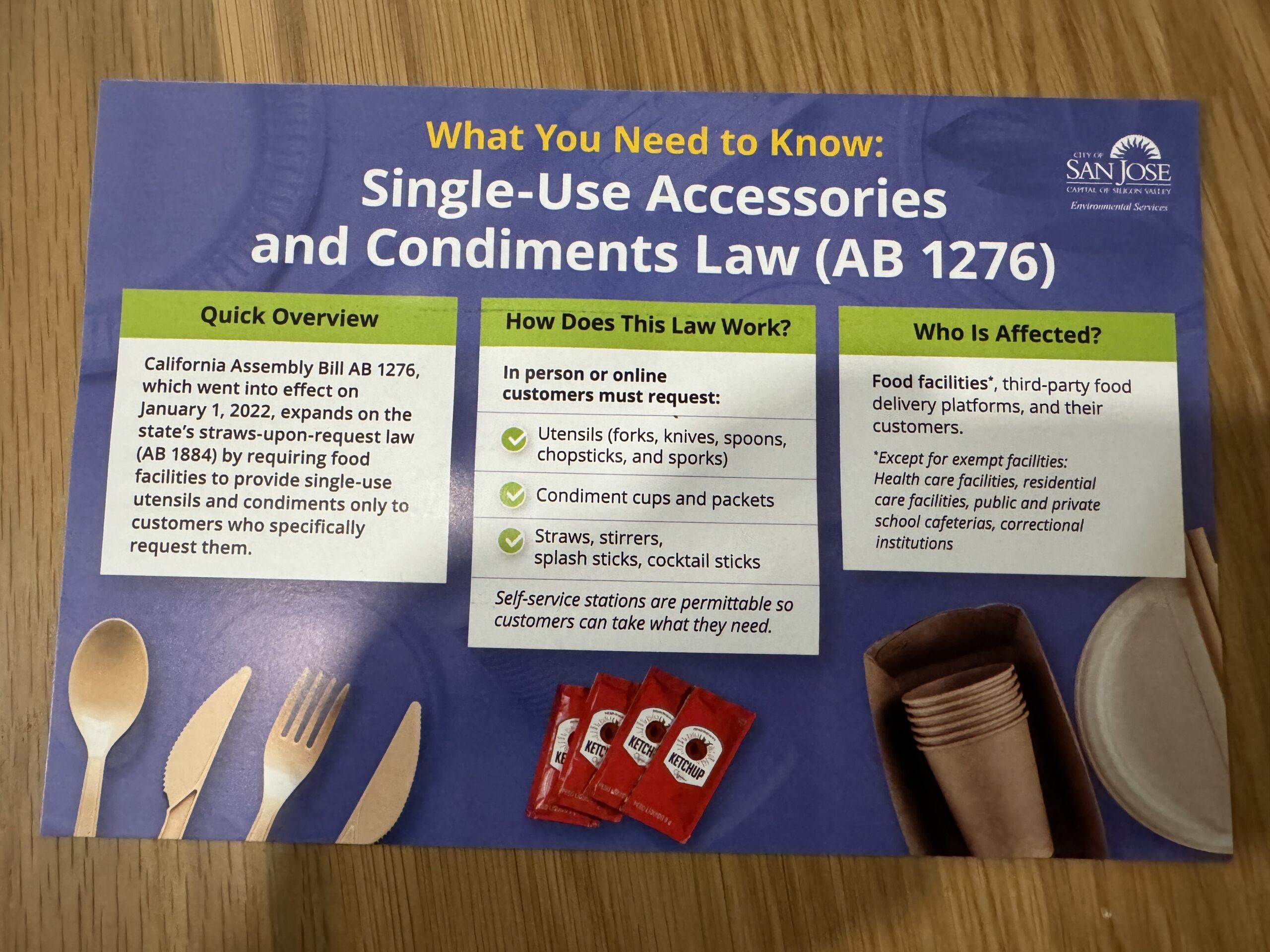Last week, I received a mail from the City of San Jose explaining California Assembly Bill (AB) 1276.
While California often gets flak for being overly liberal and protective of the environment, this policy genuinely stood out to me as an example of smart regulation.
AB 1276 requires all retail food facilities and food delivery platforms to provide single-use foodware accessories and condiments only upon request.
It’s a small shift, but one with massive implications.
The power of default is HUGE.
When ordering takeout, how often do we end up with a pile of utensils or condiments we don’t need? More often than not, they end up unused and in the trash, contributing to unnecessary waste.
This got me thinking about the psychological power of defaults, which has been proven in numerous studies. For instance, countries with a default opt-in for organ donation in their drivers license application have double the participation rates compared to those with a default opt-out policy.
As a product manager, I was naturally curious to see how this policy had been implemented across different food delivery platforms. So, I checked out how three of the most popular apps in the US—DoorDash, UberEats, and GrubHub—handled it.
Here’s what I found:
DoorDash now directly asks customers whether they need utensils through a simple Yes/No radio button in the checkout process. No selected Default.

UberEats collects this information via a free-form text note, though it’s unclear what the default selection is if a user doesn’t specify anything in the text.

GrubHub takes a different approach by using a checkbox that is unchecked by default, making it easy for customers to opt in only if they need utensils.

The Winner
In my opinion, GrubHub nails it with its implementation of default as No, keeping waste at bay while giving customers the option to request items if needed.
UberEats’ approach is definitely the most messy. A free form text is often not easy to process by machines. It does give users more flexibility about providing specific instructions, but I believe “Instructions” in itself should be decoupled from utensils fields. This ambiguous approach makes it difficult for both users to quickly opt in/out and restaurants to know when to and when not-to include utensils.
DoorDash’s approach doesn’t mark No by default, but at-least it makes it easy for users to Opt in/out. I’d rank them a runner-up.
So, here’s the final ranking:
GrubHub > DoorDash > UberEats
Though this regulation is currently limited to California, it feels like a policy that should be adopted more broadly. Small shifts like this can lead to significant changes in behavior and environmental impact.
We, as technologists, should take note of this and ensure our systems encourage sustainable behavior by design—starting with marking unnecessary utensils as NO by default.
Let’s embrace the power of default to make a positive difference for our planet.
Get freshly brewed hot takes on Product and Investing directly to your inbox!

